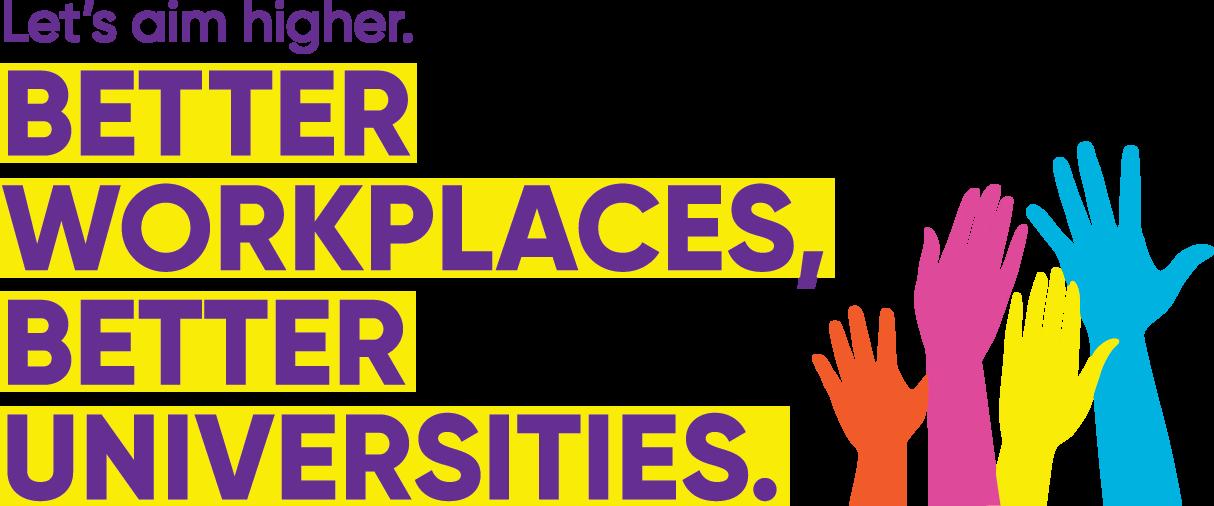
5 minute read
Crisis! What crisis?
Transforming Universities in the Midst of Global Crisis: A University for the Common Good, by Richard Hil, Kristen Lyons & Fern Thompsett

Advertisement
ISBN: 9780367897819 London, Routledge 2022
Reviewed by Eva Crowson and Sharon Stein, University of British Columbia
In recent years, scholars have become increasingly vocal about the need to interrogate the ideological and material underpinnings of western higher education, and how these underpinnings shape future projections and aspirations. Works like la paperson’s A Third University Is Possible (2017), De Sousa Santos’ Decolonising the University: The Challenge of Deep Cognitive Justice (2017), Meyerhoff’s Beyond Education: Radical Studying for Another World (2019), and Connell’s The Good University: What Universities Actually Do and Why it’s Time for Radical Change (2019), have all sought to identify how the university tessellates with colonial, patriarchal, and capitalist hegemony. Transforming Universities in the Midst of Global Crisis: A University for the Common Good takes up this line of inquiry by calling into question the colonial-neoliberal infrastructures of the modern university and casting doubt over its capacity to effectively and ethically respond to everintensifying contemporary social, economic, environmental, and political challenges.
In the book, the notion that universities are entangled ‘with the insatiable demands of rapacious late capitalism and colonial power relations’ (p. 40) informs the authors’ subsequent call to repurpose the university to ‘support the common good and develop a better world for all’ (p. 9). Writing with a sense of urgency, Hil, Lyons, and Thompsett argue that ‘the future university…must be grounded in a shared commitment to decolonise, decentralise, and democratise’ (p.29) if it is to survive, even thrive, in an uncertain future.
Transforming Universities in the Midst of Global Crisis makes a compelling case for ‘repurposing’ the university ‘from the “inside out” and “outside in”’ (p. 9), which unfolds in two parts. Part I is guided by the central premise that higher education institutions are not so much in crisis as of the crisis. This is likely not an unfamiliar idea to the book’s academic audience. In recent years, the notion that universities are ‘net contributors to the global problems that confront us’ (p. 39) has anchored many trenchant critiques of the contemporary higher education landscape. In the face of an increasingly turbulent political climate and repeated funding cuts many universities have been forced to adopt market mechanisms to stay afloat. This neoliberal enclosure of the university has ostensibly blunted the radical edge of academic research: hyper-individualism has eroded collegiality and privatisation has compromised freedom of expression (Connell, 2019). Yet others question whether the university has ever been radical and note with concern the ways that ‘crisis’ is used to re-entrench naïve nostalgia about the past (Boggs & Mitchell, 2018). Importantly, as Hil, Lyons, and Thompsett attest, the neoliberal paradigm is an extension of the colonial paradigm, and it is this neoliberal-colonial hegemony that provides the social, political, and cultural scaffolding for contemporary higher education.
However, the authors seem less concerned with recapitulating these increasingly familiar critiques, and more with envisioning what possibilities exist beyond the corporate university’s centralised structures. In Part II of the book, Hil, Lyons, and Thompsett develop the argument that reimagining higher education institutions requires looking beyond the internal, ‘minor reform’ approaches that often perpetuate colonial logic; for instance, tokenistic diversity and inclusion initiatives (Ahmed, 2012), or greenwashed sustainability initiatives. The authors envisage a university for the common good; that is, a regenerative and relational university beyond the comprehension of institutional reforms that will emerge from the co-constitutive processes of resistance, refusal, and reimagining. Hil, Lyons, and Thompsett turn to a series of case studies, including the Sands School in Devon, Deep Springs College in California, and various ‘free universities’, to illustrate alternatives beyond mainstream higher education – at times risking a romanticisation of these alternatives (Amsler, 2019). Fundamentally, Part II of the book argues that the future university must be ‘guided by the values of love, kindness, respect, compassion, care, reciprocity and mutuality in all tertiary relations and practices’ (p. 152).
The achievements of the book are threefold. First, Hil, Lyons, and Thompsett provide an incisive analysis of the historical foundations of the modern university and convincingly illustrate the links between higher education, knowledge production, colonialism, and neoliberalism. This alone offers a meaningful contribution to contemporary debates about the future of higher education. Second, the book is replete with timely and pertinent references and case studies. Third, and perhaps most importantly, the book successfully draws attention to the need to understand the ‘historical and ongoing imbrications between universities and settler colonialism’ (p. 87). Notwithstanding the aforementioned recent texts, the specific challenges that emerge at this intersection are under-researched and underrepresented in the broader higher education literature. Although it has a distinctly Australian focus, these insights are relevant to those concerned with higher education in other settler colonial contexts (including Canada, New Zealand, and the United States).
In Chapter 4, the authors argue that ‘one of the most important steps towards decolonising universities lies in interrogating how lands are ‘owned’ and occupied by these institutions’ (p. 89). In a thorough discussion of the relationship(s) between Indigenous intellectual sovereignty and Indigenous territorial sovereignty, Hil, Lyons, and Thompsett consider the implications of their own positionalities as settlers educated and employed by higher education institutions situated on colonised Indigenous lands. The book’s discussion of how universities ‘prop up the settler colonial drive for territoriality’ (p. 89) is significant, as is the acknowledgement that decolonisation must therefore ‘centre the repatriation of lands and material resources to Indigenous people’ (Ibid.). The authors rightly stress the ‘need to remain wary’ when deploying terms such as ‘commons’ and ‘common good’ because both ‘have been used at times to elide the primacy of Indigenous sovereignty by forwarding an anti-capitalist agenda that fails to centre decoloniality.’ (p. 92). They might have taken this critique even further to more thoroughly consider the complexities and contradictions that arise from their own proposal to ‘envision a university for the common good’ (p. 150), given that Indigenous rights have often been violated in the name of a settler common good. If we want a university that is not premised on the reproduction of colonial and ecological harm, then we will need to engage with the limitations of the alternatives that have emerged from within our existing frames of reference, including those from radical traditions. And we will likely need to accept that we do not yet have an answer to the question: If not a corporate university, or a university of the colonial commons, then what? Fortunately, the authors offer a number of generative entry points from which to approach this question.
Eva Crowson is a PhD student in the Department of Educational Studies at the University of British Columbia, Canada. Dr Sharon Stein is an Assistant Professor in the same place.
Contact: eva.crowson4@gmail.com
References
Ahmed (2012). On being included. Duke University Press. Amsler, S. (2019). Gesturing towards radical futurity in education for alternative futures. Sustainability Science, 14(4), 925-930.
Boggs, A., & Mitchell, N. (2018). Critical university studies and the crisis consensus. Feminist Studies, 44(2), 432-463.
Connell, R. (2019). The good university: What universities actually do and why it’s time for radical change. Zed Books Ltd.
de Sousa Santos, B. (2017). Decolonising the University: The Challenge of Deep Cognitive Justice. Cambridge: Cambridge Scholars Publishing.
Meyerhoff, E. (2019). Beyond Education: Radical Studying for Another World. Minneapolis: University of Minnesota Press.
paperson, l. (2017). A Third University Is Possible. Minneapolis: University of Minnesota Press.
Over 30,000 jobs have been lost in the higher education sector throughout the past few years For years previous to that, university staff have been increasingly exposed to uncertainty around our job security, workloads and whether our pay will keep up with the rising cost of living
During the week of 1


5 May 2023, NTEU members in universities across Australia will take action so that we can create better universities and better workplaces for uni staff



We can’t do this alone. Join us to build public awareness around the importance of safe workloads, secure jobs and a fair pay so that our universities can flourish.
We deserve a fair pay, safe workloads and secure jobs Better universities now.




